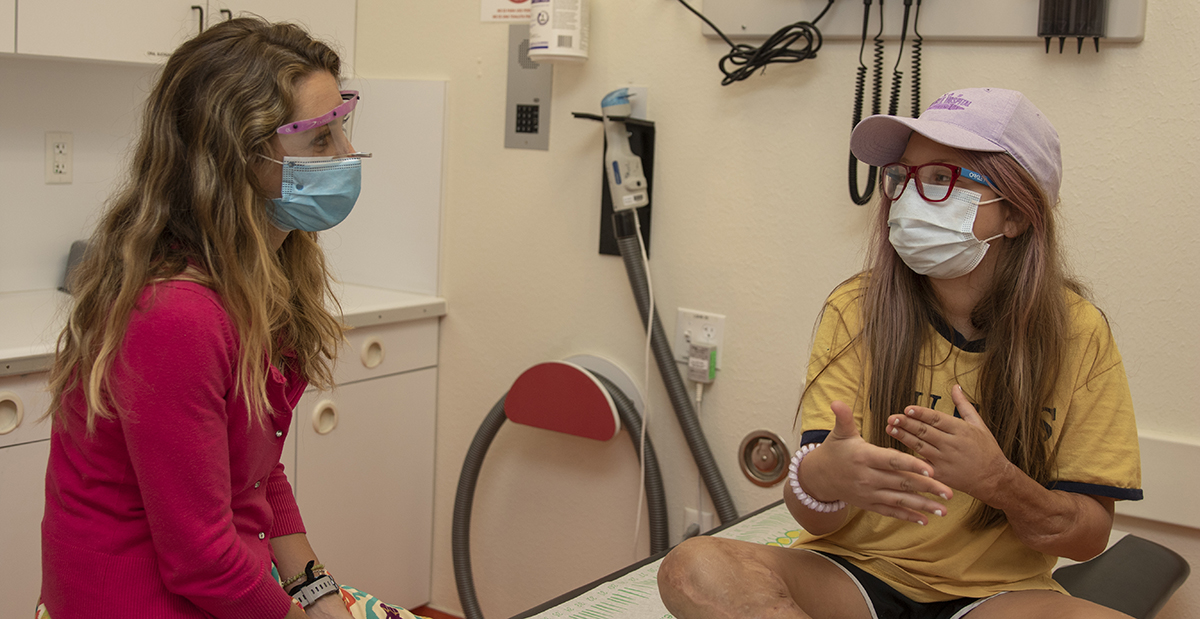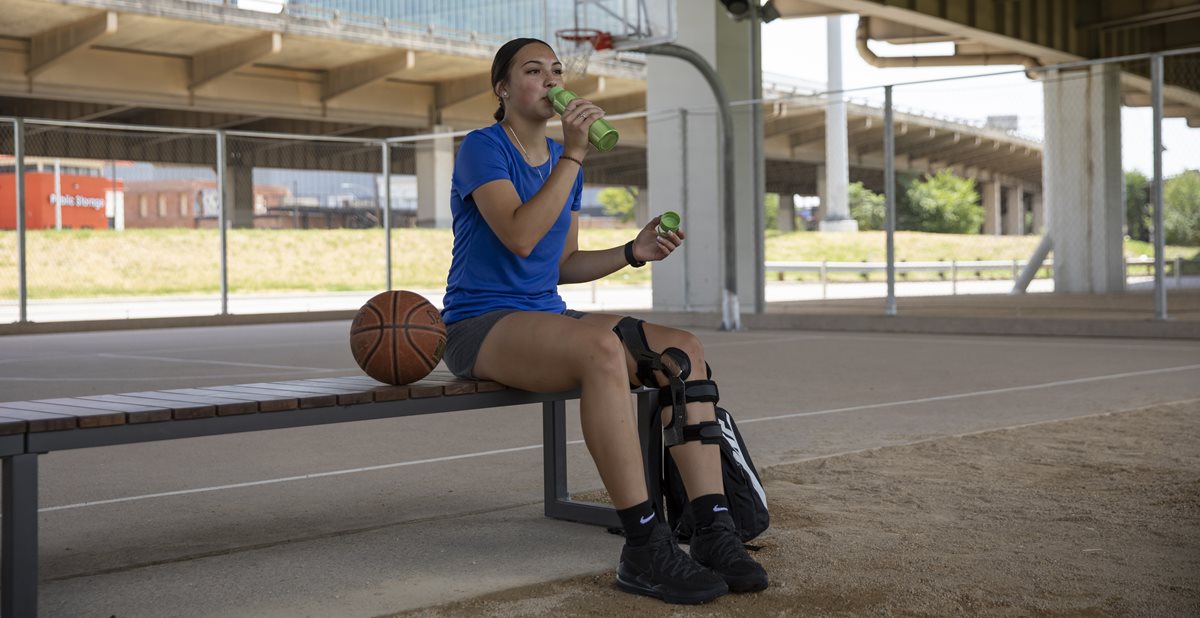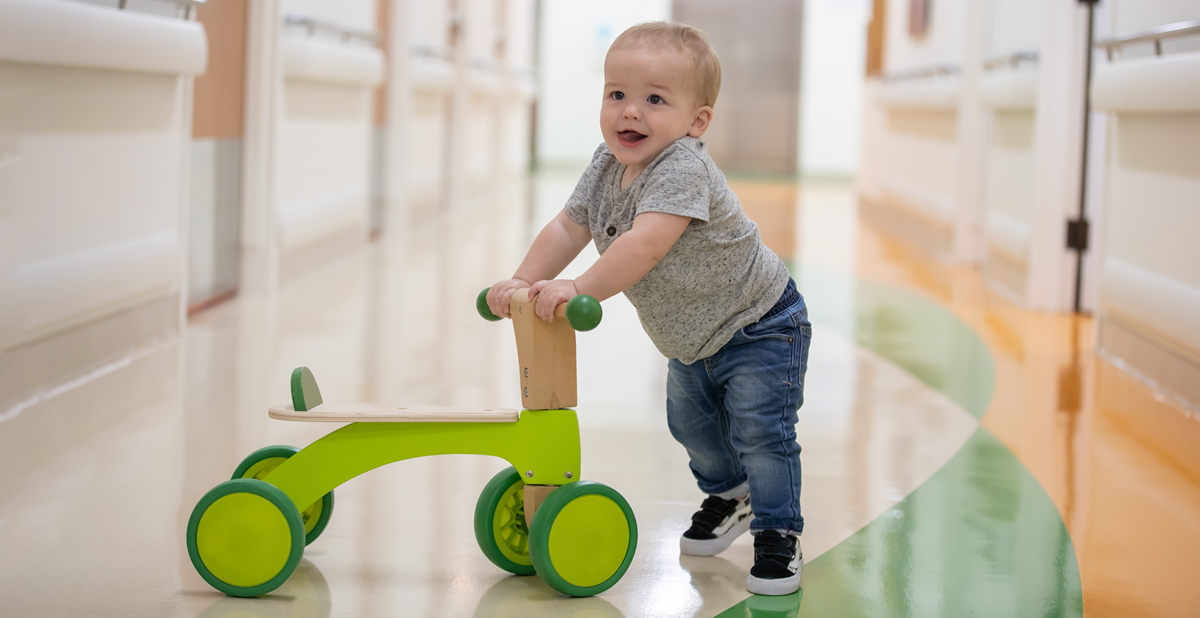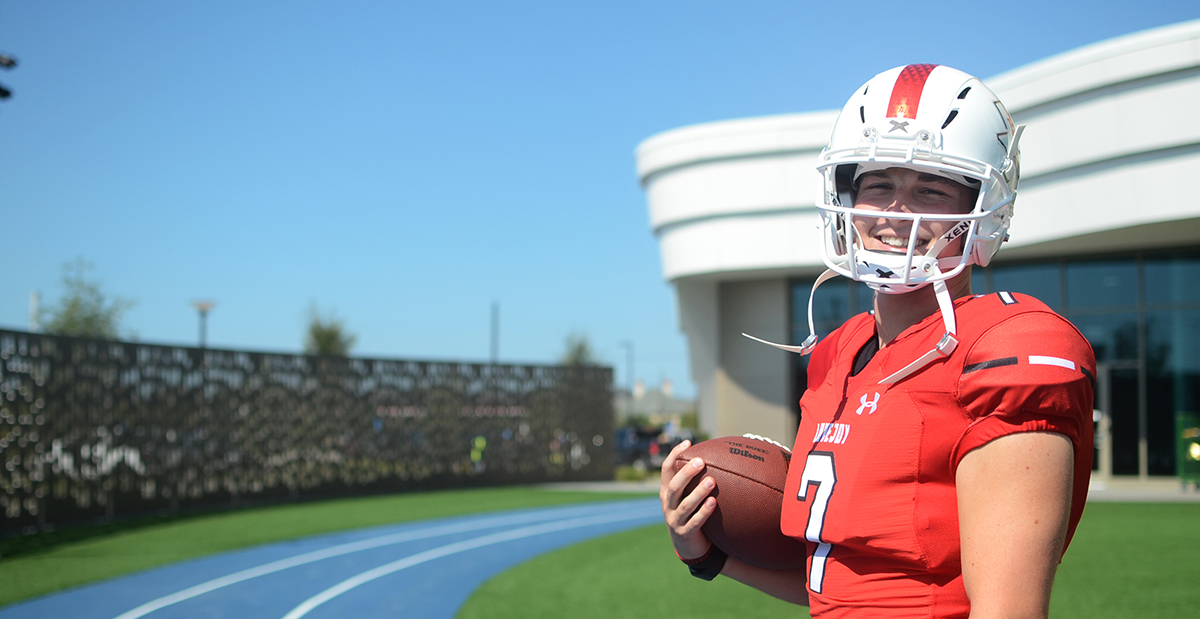
Jul 12, 2022 / Psychology
The Impact Psychology Can Have for Patients With Hand/Upper Extremity Differences
At Scottish Rite for Children, our pediatric psychologists work alongside our doctors to provide the best care for patients. Regardless of a child’s condition or type of treatment, the Psychology team can be a useful resource.
For patients with hand/upper extremity differences, the Psychology department is able to provide a variety of services. Pediatric psychologist Whitney Herge, Ph.D., works closely with patients seen in our Hand clinic. To get a better understanding about how this service positively impacts this population, Herge answered a few questions. Read more below.
What is the main service Psychology can provide our patients with hand/upper limb differences?
Many of these children are seen by our experts at a very young age and a psychologist may help screen children to make sure they are meeting developmental milestones. In addition, the Psychology department can support these patients by helping to connect them with various programs such as Early Childhood Intervention or the Preschool Program for Children with Disabilities.
As the child gets older, Psychology helps them in understanding and taking ownership of their hand or limb differences. A psychologist talks with patients and families about how to manage questions and curiosity from others, including at school and in the community. If caregivers are noticing concerning symptoms in their children related to anxiety, self-consciousness or low self-esteem, we will support patients in getting connected to mental health providers in the community.
For those patients who may require surgery, Psychology helps these children to understand surgical and post-operative expectations in a developmentally appropriate way. We also support patients in managing post-operative adherence, such as completing occupational therapy exercises.
Further, Psychology provides education and intervention for those patients experiencing chronic pain concerns, and we provide support for patients with traumatic injuries.
Why is this service so important for this population?
Children with hand and upper limb differences may be at risk for experiencing certain psychological symptoms, given the high visibility and functional importance of upper extremities. As such, regular screening of patients is critical.
Does your team work closely with the hand camps? We know that has such an impact on their lives.
I have had the pleasure of getting to attend Hand Camp in the past. It’s a great way to get to know patients and their families on a more personal level, and to witness all of the wonderful, unique ways patients with hand and upper extremity differences navigate their world. The importance of patients connecting with peers with similar hand and upper extremity differences cannot be overstated.
As a caregiver, are there certain warning signs I should pay attention to in my child?
Paying attention to changes in your child’s mood is very important. If you notice that your child seems sad, down, frustrated or irritable, if they withdraw from activities or interacting with others, if they experience a decline in their grades, or if they begin to hide/cover their hand or limb difference, those may be signs that it would be helpful to speak to a psychologist.
Can you explain to the caregiver/patient what it is like to meet with you? What can they expect?
I have the pleasure of getting to meet patients and their families primarily in clinic. That means that I get to meet with a patient when they are coming for their appointment with Scott Oishi, M.D., or Chris Stutz, M.D. When meeting with patients, I try to get to know them as a whole person, including who they live with at home, where they go to school and how they feel about school, and how things go for them with peers. I will also try to understand their emotional functioning, including factors related to their mood, anxiety and self-esteem.
If surgery is recommended, I will review surgical and post-operative expectations to ensure the patient has a clear understanding of why surgery is recommended, what surgery will include and what the child can expect after surgery. For those patients who have surgery, I also follow them on the inpatient unit throughout their hospitalization. For other concerns, such as pain management, I will provide education to patients and their families in clinic and/or in brief outpatient sessions.
Learn more about our Psychology services.
For patients with hand/upper extremity differences, the Psychology department is able to provide a variety of services. Pediatric psychologist Whitney Herge, Ph.D., works closely with patients seen in our Hand clinic. To get a better understanding about how this service positively impacts this population, Herge answered a few questions. Read more below.
What is the main service Psychology can provide our patients with hand/upper limb differences?
Many of these children are seen by our experts at a very young age and a psychologist may help screen children to make sure they are meeting developmental milestones. In addition, the Psychology department can support these patients by helping to connect them with various programs such as Early Childhood Intervention or the Preschool Program for Children with Disabilities.
As the child gets older, Psychology helps them in understanding and taking ownership of their hand or limb differences. A psychologist talks with patients and families about how to manage questions and curiosity from others, including at school and in the community. If caregivers are noticing concerning symptoms in their children related to anxiety, self-consciousness or low self-esteem, we will support patients in getting connected to mental health providers in the community.
For those patients who may require surgery, Psychology helps these children to understand surgical and post-operative expectations in a developmentally appropriate way. We also support patients in managing post-operative adherence, such as completing occupational therapy exercises.
Further, Psychology provides education and intervention for those patients experiencing chronic pain concerns, and we provide support for patients with traumatic injuries.
Why is this service so important for this population?
Children with hand and upper limb differences may be at risk for experiencing certain psychological symptoms, given the high visibility and functional importance of upper extremities. As such, regular screening of patients is critical.
Does your team work closely with the hand camps? We know that has such an impact on their lives.
I have had the pleasure of getting to attend Hand Camp in the past. It’s a great way to get to know patients and their families on a more personal level, and to witness all of the wonderful, unique ways patients with hand and upper extremity differences navigate their world. The importance of patients connecting with peers with similar hand and upper extremity differences cannot be overstated.
As a caregiver, are there certain warning signs I should pay attention to in my child?
Paying attention to changes in your child’s mood is very important. If you notice that your child seems sad, down, frustrated or irritable, if they withdraw from activities or interacting with others, if they experience a decline in their grades, or if they begin to hide/cover their hand or limb difference, those may be signs that it would be helpful to speak to a psychologist.
Can you explain to the caregiver/patient what it is like to meet with you? What can they expect?
I have the pleasure of getting to meet patients and their families primarily in clinic. That means that I get to meet with a patient when they are coming for their appointment with Scott Oishi, M.D., or Chris Stutz, M.D. When meeting with patients, I try to get to know them as a whole person, including who they live with at home, where they go to school and how they feel about school, and how things go for them with peers. I will also try to understand their emotional functioning, including factors related to their mood, anxiety and self-esteem.
If surgery is recommended, I will review surgical and post-operative expectations to ensure the patient has a clear understanding of why surgery is recommended, what surgery will include and what the child can expect after surgery. For those patients who have surgery, I also follow them on the inpatient unit throughout their hospitalization. For other concerns, such as pain management, I will provide education to patients and their families in clinic and/or in brief outpatient sessions.
Learn more about our Psychology services.



